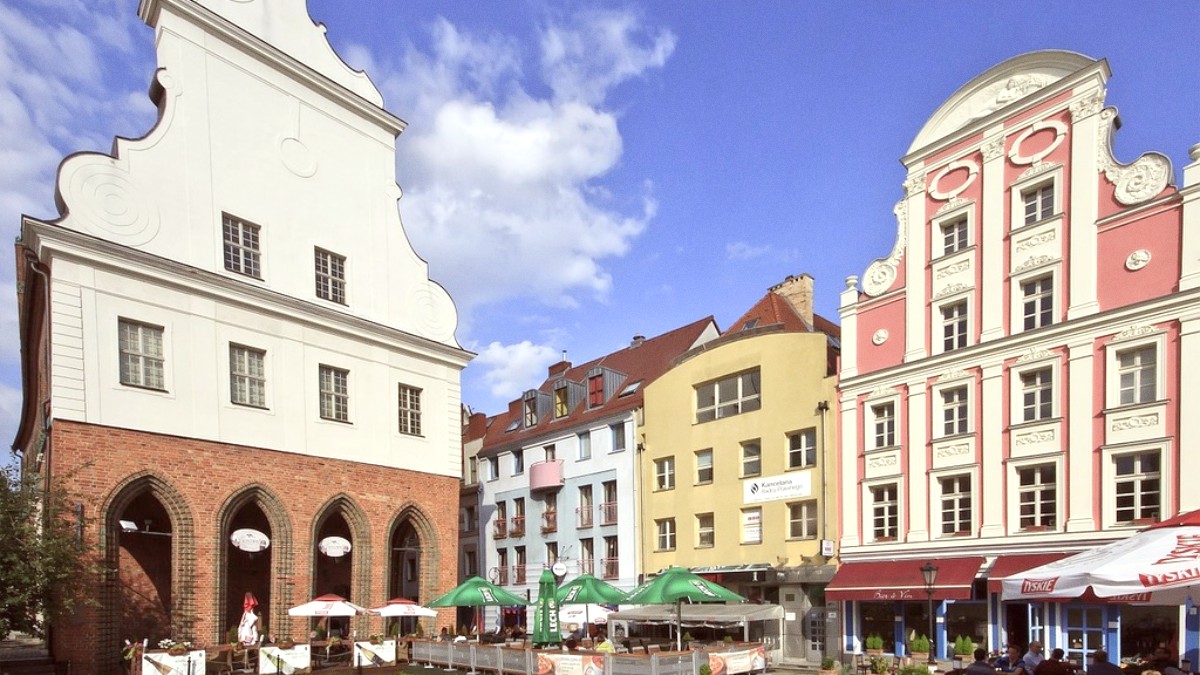
Pomerania, Poland
Poland has good mobile coverage. Major providers are Play, T-Mobile, Orange, and Plus. Prepaid SIM cards are readily available at kiosks (Żabka stores are common), supermarkets, or official brand stores. Airalo eSIMs are a digital option.
Free Wi-Fi is common in Szczecin. You will find it in most hotels, cafes, restaurants, and public spaces like shopping malls. Mobile data plans with a local SIM card also give reliable internet access on the go.
The official language is Polish. English proficiency has grown, especially among younger generations and in tourist-facing businesses. In older generations, German can be more commonly understood. Learning a few basic Polish phrases goes a long way.
Poczta Polska (Polish Post) is the national postal service. Post offices are widely available throughout Szczecin. You can send postcards, letters, or packages.
While standard Polish is universal, local accents or phrases may be heard. Most communication relies on common Polish.
Understand typical operating hours to plan your activities and avoid disappointment.
Large shopping malls operate from 9 AM to 9 PM on weekdays, 9 AM to 8 PM on Saturdays. Supermarkets often have longer hours, around 7 AM to 9 PM or 10 PM.
Lunch service is typically 12 PM to 3 PM. Dinner service starts around 5 PM and continues until 10 PM or later. Cafes open earlier for breakfast and coffee.
Generally open from 10 AM to 5 PM or 6 PM. Many museums are closed on Mondays. Check individual websites for specific opening times.
Banks typically open from 9 AM to 5 PM on weekdays. ATMs (bankomat) are widely available 24/7 in city centers, shopping malls, and near major transport hubs.
Poland has restrictions on Sunday trading. Most large supermarkets and shops are closed on Sundays. Small convenience stores, like Żabka, often remain open.
For flight delays or cancellations, Compensair assists with compensation claims. For airport lounge access, consider Priority Pass.
Polish cultural interactions and expectations for visitors.
A handshake is common for formal introductions between adults. Close friends and family greet with kisses on the cheek (usually three, alternating sides).
Generally, dress is casual. When visiting churches, monasteries, or other religious sites, dress modestly. This means shoulders and knees covered for both men and women.
A 10-15% tip is typical in restaurants if a service charge is not included. Keep your hands above the table, not in your lap. Wait for everyone to be served before starting to eat.
Taking photos in public spaces is generally fine. Be respectful when photographing individuals; always ask for permission first, especially with children.
For language barriers, using a phrasebook or translation app assists with quick communication in restaurants, shops, and when asking for directions.
Information for travelers with mobility challenges or other special needs.
Accessibility infrastructure in Poland is getting better, notably in newer constructions, major public buildings, and renovated areas. Older parts of the city with cobblestone streets or historical buildings may present challenges.
Major museums (like the Szczecin Philharmonic and parts of the National Museum) are generally accessible. The Pomeranian Dukes' Castle has elevators to some levels.
While less common than in Western Europe, major cultural institutions might have some support or specialized tours for those with visual or hearing impairments.
Contact local tourist information centers in Szczecin. They may have up-to-date information or direct you to organizations in Poland that specialize in accessible travel.
Szczecin continues to upgrade its urban landscape to be more inclusive for all visitors.